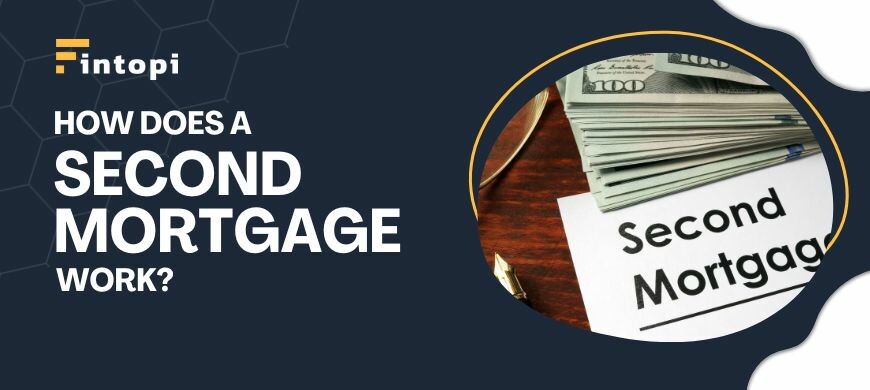Understanding the Benefits of a Second Mortgage
A second mortgage can help homeowners who need to make big purchases or pay off a lot of debt at once. It is also an option if you are looking to purchase another home but don’t have enough cash saved up for a down payment.
A second mortgage may offer lower interest rates than other forms of financing, such as credit cards or personal loans from banks. Additionally, it allows borrowers access to their equity without having to sell their homes outright in order to get money quickly.
How Does a Second Mortgage Work?
Second mortgage loans are loans in which the borrower agrees to repay the lender over time a portion of the loan’s principal amount plus interest on a periodic basis, with the value of the property being used as collateral.
In addition to the principal amount borrowed, the borrower will also be responsible for paying interest on a monthly basis until the loan is repaid in full. Monthly payments may be fixed or flexible according to market conditions or other factors, depending on the type of loan selected. Before signing anything, be sure you fully grasp all of the terms.
Second Mortgage Loan Requirements
One of the prerequisites for this type of loan is a sizable amount of equity in one’s principal residence. The second requirement is that applicants have solid credit. Lastly, they need to show that they can and will repay the loan according to the terms agreed upon by the lending institution and the borrower.
Before considering an application, lenders typically need documentation of regular income, such as tax records. Last but not least, you might have to put up some collateral to cover any losses that occur throughout the repayment time.
However, due to the nature of each circumstance, it is advisable that you seek the advice of a financial counselor. So that you may ensure the precise necessities.
How Do I Get A Second Mortgage?
It’s important to know the ins and outs of any loan you’re considering taking out, including mortgages, before you apply. Discovering what services are available from what companies is the first order of business.
The next step is to evaluate each deal to see which one is the best fit for your needs. It’s important to remember to factor in any applicable fees or costs to these offers. In this method, you may verify that the complete cost of borrowing accurately depicts your long-term financial capability.
When you’ve made your choice, the next step is to determine whether or not to submit an application.
Conclusion
If you are already a homeowner and want to buy another house for investment or vacation or rental purposes, you should consider getting a second home mortgage. This way, it will help fund the acquisition in the same way that you did with your first home.
However, keep in mind that there are certain restrictions and regulations regarding the ownership of multiple properties. For instance, you can not rent out more than two residences at the same time, unless you have special permission from the local authorities.
FAQs
1. What happens if I fail to make payments on my second mortgage?
In the event of nonpayment, the holder of the second mortgage lien has the right to foreclose on the property. Also, they can recover the funds you owe to them.
2. Can you borrow more than 80% LTV with a HELOC?
Yes, only if you meet the criteria of the bank institution providing the service.
3. Is it possible to refinance both my first and second mortgages in one transaction?
In general, no, because separate entities are different under the legal system. Though there are exceptions if applicable.



